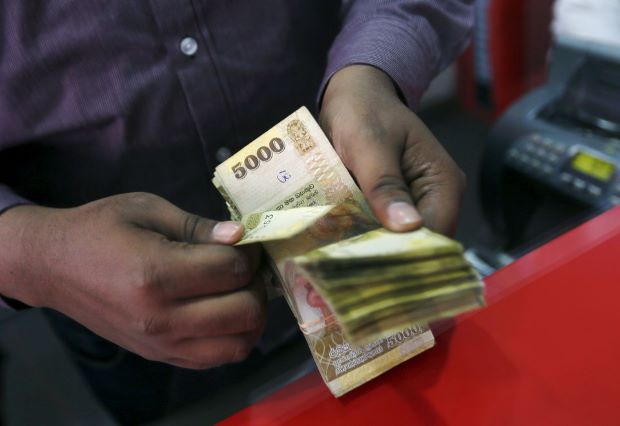Sri Lanka Rupee to reverse and plummet 23%, warns Fitch Solutions
By Ronojoy Mazumdar and Karl Lester M Yap
HONG KONG – Sri Lanka’s rupee, which became the world’s best performing currency this year amid hopes of an International Monetary Fund (IMF) bailout, may resume declines and lose almost a fourth of its value against the dollar by end-2023, according to Fitch Solutions.
“We see the potential for disruptions in the IMF program,” Seah Wang Ting, country risk analyst at Fitch Solutions, said in an emailed response to questions. “Authorities have to remain committed to enacting tough reforms to stay on track with the IMF program. This might be politically challenging against the backdrop of a weakening economy and a local election likely on the horizon.”
Fitch maintained its forecast for the rupee to weaken about 23% to a record low of 390 per dollar by year-end. The rupee advanced 0.5% to 316.8 per dollar on Thursday (9), taking its annual gain to 14%. That’s after the IMF said it will decide on a $2.9 billion bailout for Sri Lanka on March 20 following China’s assurance that it will support the nation’s debt restructuring.
Fitch’s view puts it at odds with Bloomberg Economics, which predicted the rupee will rise further to 309 per dollar on Thursday. Sri Lanka has increased taxes, cut energy subsidies and loosened its grip on the currency to secure the IMF loan. The central bank recently lifted borrowing costs further to ensure that inflation which has slowed from nearly 70% doesn’t flare up.
“Sri Lanka still has significant external debt repayment needs and will need to build up its foreign reserve buffer over the coming months, which would put downside pressure on the exchange rate,” Fitch said in a report Wednesday (8).
President Ranil Wickremesinghe said on Tuesday (7) the country needs to repay about $6 billion-$7 billion foreign loans on average each year until 2029.
The rupee may also be pressured by tightening global monetary conditions, according to Fitch. Federal Reserve Chair Jerome Powell told the Senate Banking Committee on Tuesday that the ultimate level of interest rates is likely to be higher than previously anticipated.
-Bloomberg



Comments are closed, but trackbacks and pingbacks are open.